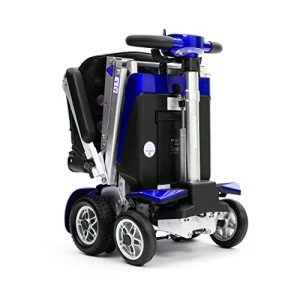An Adventure Back In Time What People Said About Mobility Scooters Shops Near Me 20 Years Ago
Mobility Scooters: A Comprehensive Guide
Mobility scooters have become an important mode of transport for lots of people facing mobility challenges. This short article explores the different facets of mobility scooters, including their types, benefits, features, and a guide for prospective buyers.
Comprehending Mobility Scooters
Mobility scooters are electrically powered devices developed for individuals with limited mobility. They offer a method of transportation for people who may have difficulty walking but still wish to maintain their self-reliance. mobility scooters sale are available in various designs and functions to cater to a broad variety of requirements.
Types of Mobility Scooters
Mobility scooters can generally be categorized into 3 main types:
Type
Description
Best For
Compact Scooters
These are small and lightweight, perfect for inside your home and short journeys.
Users with limited storage space or those who take a trip typically.
Mid-size Scooters
A balance between portability and stability, ideal for both indoor and outside use.
Those who need to cover a range of surfaces.
Sturdy Scooters
Large and robust, created for rugged outside usage and heavier individuals.
Users needing additional weight capability or going off-road.
Secret Features of Mobility Scooters
The option of mobility scooter frequently depends on the functions that line up with individual requirements. Here are some of the essential functions to think about:
Weight Capacity: Mobility scooters come with different weight limitations. It is crucial to pick a scooter that can properly support the user's weight.
Variety: The range a scooter can travel on a single charge differs. Depending upon user requirements, one might select scooters with a variety of as much as 40 miles.
Speed: Most mobility scooters can reach speeds between 4 to 8 mph. Consider what speed is comfy and safe for the desired environment.
Turning Radius: A compact turning radius is vital for indoor use, permitting for much easier navigation in tight spaces.
Battery Type: The kind of batteries used can impact the scooter's performance. Lead-acid and lithium-ion batteries are the most typical.
Advantages of Using Mobility Scooters
The advantages of mobility scooters extend beyond simply transport. Some essential benefits include:
Independence: Users can browse their environment without counting on caretakers, promoting self-reliance and confidence.
Health Benefits: Using a scooter can motivate outdoor activity, causing physical and mental health enhancements by lowering feelings of seclusion.
Convenience: Scooters can quickly be run in different environments, whether indoors, in shopping center, or outdoors.
Essential Considerations When Buying a Mobility Scooter
When purchasing a mobility scooter, numerous considerations can help ensure that you pick the right model:
Assess Individual Needs:
- Mobility level: Consider how much assistance the person will require.
- Variety of use: Determine where the scooter will mainly be used (inside, outdoors, on rough surfaces, and so on).
Test Drive:
- Always test drive several designs to discover an ideal fit. Take note of comfort, ease of steering, and the scooter's responsiveness.
Evaluation Safety Features:
- Look for scooters with appropriate safety functions like lights, indicators, and anti-tip designs.
Check Warranty and Service Options:
- A reliable service warranty and available service alternatives are essential for long-lasting use.
FAQs about Mobility Scooters
**1. How quick do mobility scooters go?Mobility scooters typically have speeds ranging from 4 to 8 mph, with many developed for security rather than high-speed travel. 2. Exist weight restrictions on mobility scooters?Yes, mobility
scooters come with particular weight limits, typically ranging from
250 pounds to over 500 lbs, depending on the design. 3. Can mobility scooters be used indoors?Certain designs, particularly compact scooters, are particularly developed for
**indoor use and are simpler to steer in tight areas. 4. How often do the batteries require to be replaced?Battery life can vary based upon usage, however usually, with proper care, batteries may last in between 1 to 3 years before requiring replacement
**. 5. Are mobility scooters covered by insurance?Coverage can vary, however some insurance plans, consisting of Medicare and Medicaid, may cover part of the expense. It's advised to check with specific insurance providers. Mobility scooters serve as a
valuable tool for many people, enabling them to preserve
their liberty and self-reliance. By understanding the various types and functions of mobility scooters, people can make educated decisions tailored to their particular needs.
Whether used for errands, mingling, or leisurely activities, mobility scooters can boost the quality of life for those with mobility restrictions. Buying a mobility scooter is a decision that can considerably impact a person's day-to-day life. For that reason, people need to thoroughly assess their alternatives and select a model that best aligns with their way of life and mobility requirements
.  ******
******